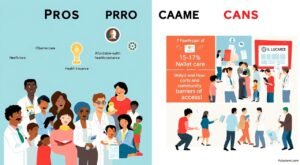Authenticating your birth certificate, which involves verifying its validity for use in official and legal matters, has various benefits and drawbacks. This guide explores the key pros and cons to help you understand its implications.
Pros
1Legal Recognition: Ensures your birth certificate is legally recognized in foreign countries, facilitating international travel, work, and study.
2Immigration Processes: Simplifies immigration and visa applications by providing authenticated proof of identity and citizenship.
3Educational Opportunities: Essential for enrolling in educational institutions abroad that require verified documents.
4Marriage Abroad: Necessary for getting married in a foreign country that requires authenticated birth certificates.
5Government Services: Required for accessing certain government services and benefits that need verified identity proof.
6Employment: Helps secure employment abroad by providing authenticated proof of identity to employers.
7Inheritance Claims: Important for claiming inheritance or legal rights in a foreign country.
8Dual Citizenship: Facilitates the process of applying for dual citizenship or nationality.
9Adoption Procedures: Essential for international adoption processes to verify the identity and origin of the adoptee.
10Banking Services: Required for opening bank accounts or accessing financial services in foreign countries.
11Passport Applications: Necessary for passport applications in some countries that require authenticated birth certificates.
12Military Enlistment: Needed for joining the military in countries that require verified documents.
13Legal Proceedings: Useful in legal proceedings abroad where proof of identity is necessary.
14Document Integrity: Ensures the integrity and authenticity of your birth certificate, preventing fraud.
15Easier Replacement: Simplifies the process of replacing lost or stolen birth certificates in foreign countries.
16Travel Arrangements: Facilitates travel arrangements that require proof of identity and citizenship.
17Academic Verification: Helps verify academic credentials that require proof of birth and identity.
18Consular Services: Assists in accessing consular services abroad by providing authenticated identity proof.
19Genealogical Research: Useful for genealogical research and verifying family history.
20Permanent Record: Creates a permanent record of your birth certificate’s authenticity, providing long-term validity.
Cons
1Cost: Authentication can be expensive, involving fees for notarization, apostille, and other services.
2Time-Consuming: The process can be time-consuming, requiring multiple steps and waiting periods.
3Bureaucratic Complexity: Involves navigating complex bureaucratic procedures, which can be confusing and frustrating.
4Limited Validity: Authenticated documents may have limited validity and need re-authentication after a certain period.
5Geographical Restrictions: Some countries have specific requirements for authentication that can be difficult to meet.
6Security Risks: Sending original documents for authentication poses a risk of loss or theft.
7Accessibility Issues: Accessing authentication services can be challenging, especially in remote or rural areas.
8Legal Requirements: Different countries have varying legal requirements for document authentication, which can complicate the process.
9Duplication of Effort: Some documents may need multiple authentications for different purposes, leading to redundancy.
10Language Barriers: Translation and legalization of documents may be required, adding complexity and cost.
11Notarization Errors: Errors in notarization or authentication can invalidate the document and require reprocessing.
12Document Damage: Handling and processing can damage fragile or old documents.
13Privacy Concerns: Sharing personal information for authentication can raise privacy and security concerns.
14Inconsistent Standards: Authentication standards and procedures can vary, leading to inconsistencies.
15Dependency on Officials: Reliant on government or consular officials for accurate and timely processing.
16Fraud Potential: Risk of encountering fraudulent services or scams during the authentication process.
17Legal Disputes: Incorrect or improper authentication can lead to legal disputes or complications.
18Update Requirements: May need periodic updates or renewals, adding to long-term costs.
19Accessibility for Vulnerable Populations: More challenging for vulnerable populations, such as refugees or undocumented individuals, to obtain authentication.
20Administrative Burden: Adds an administrative burden to individuals and families needing multiple authenticated documents.



